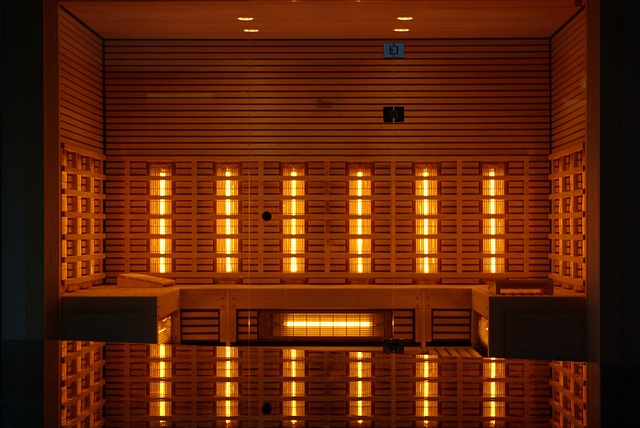Collagen Restoration Therapy (CRT) is an innovative dermatological approach to treating acne scars by stimulating natural healing processes through enhanced collagen production. Techniques like microneedling and PRP smoothen depressed scars, improve skin texture, and offer promising results for achieving a healthier, more youthful complexion without drastic measures. Personalized approaches, tailored by consulting dermatologists, ensure optimal outcome chances while minimizing risks associated with various therapies.
Acne scars can leave lasting marks on one’s skin and self-confidence. Fortunately, innovative repair methods offer hope for reduction and restoration. This article delves into the science behind acne scars, exploring the transformative potential of collagen restoration therapy—a novel approach that targets scar formation at its root. We also examine other cutting-edge treatments, providing insights into choosing the best plan tailored to individual needs.
- Understanding Acne Scars and the Role of Collagen
- Collagen Restoration Therapy: A Novel Approach to Scar Treatment
- Other Innovative Repair Methods for Acne Scars
- Choosing the Right Treatment Plan: Considerations for Effective Acne Scar Reduction
Understanding Acne Scars and the Role of Collagen

Acne scars are a common concern, often leaving individuals with disfigured skin due to past breakouts. These scars form when inflammation damages the collagen and elastin fibers in the skin, leading to depressed or raised lesions. Collagen is a crucial protein that provides structure and elasticity to our skin, making it essential for repairing acne scars effectively.
Collagen restoration therapy has emerged as an innovative approach to addressing these scars. By stimulating the production of new collagen, these therapies aim to rebuild the damaged skin tissue, resulting in improved skin texture and reduced visibility of scars. This method offers hope for those seeking long-lasting solutions beyond traditional treatments, providing a more natural way to restore the skin’s beauty.
Collagen Restoration Therapy: A Novel Approach to Scar Treatment

Collagen Restoration Therapy (CRT) is a groundbreaking approach in dermatology that offers hope for those struggling with acne scars. This innovative method focuses on stimulating the skin’s natural healing process by restoring collagen production, which is often diminished in scarred areas. By using advanced techniques and specific treatments, CRT aims to smoothen out depressed scars and enhance the overall texture of the skin.
The therapy involves a series of targeted procedures that carefully manipulate the skin to trigger collagen synthesis. This can include microneedling, where fine needles create controlled micro-injuries, stimulating the body’s response to heal and build new collagen. Combined with topical treatments and sometimes platelet-rich plasma (PRP), CRT promotes cellular regeneration and fosters a healthier, more youthful complexion. With its ability to improve scar appearance and skin quality, collagen restoration therapy is quickly gaining recognition as a top choice for those seeking effective and natural-looking acne scar repair.
Other Innovative Repair Methods for Acne Scars

Other innovative repair methods for acne scars include advanced techniques that focus on collagen restoration. Collagen, a protein that provides structure and elasticity to skin, often degrades or becomes unevenly distributed due to inflammation from acne. One such method is microneedling, where tiny needles are used to create controlled micro-injuries in the skin, stimulating the body’s natural production of collagen. This process not only improves skin texture but also promotes the growth of healthy new collagen fibers, helping to reduce the appearance of scars over time.
Another promising approach is fractional laser therapy, which targets specific depth layers of the skin while minimizing damage to the surface. These lasers emit light energy that breaks up scar tissue, allowing the body to replace it with new, healthy collagen. This method offers precise control and can be highly effective for deeper acne scars. In combination with other treatments like topical medications or injections, these innovative repair methods provide a comprehensive approach to addressing acne scars, offering patients improved skin texture and confidence.
Choosing the Right Treatment Plan: Considerations for Effective Acne Scar Reduction

Choosing the right treatment plan is pivotal for effective acne scar reduction. It’s essential to consider factors like skin type, severity of scarring, and individual healing capacity when selecting a method. Collagen restoration therapy, for instance, has gained popularity due to its ability to stimulate skin cell regeneration and enhance collagen production, leading to improved texture and reduced visibility of scars. However, not all therapies are suitable for everyone; some may require multiple sessions or combination treatments for optimal results.
Consulting with a dermatologist is crucial in navigating these options. They can assess your unique situation, recommend appropriate treatment plans, and monitor progress. By taking a personalized approach, you increase the chances of achieving desirable outcomes while minimizing potential side effects or complications.
Acne scars can significantly impact self-esteem, but innovative repair methods offer hope for reduction and improvement. Understanding the role of collagen in scar formation is key, leading to advancements like Collagen Restoration Therapy—a groundbreaking approach that targets this fundamental component. While various other treatment options exist, each with its own merits, choosing the right plan requires considering individual needs and consulting professionals. By exploring these methods, from collagen-focused therapies to newer techniques, individuals can take proactive steps towards achieving clearer skin and boosting confidence.
